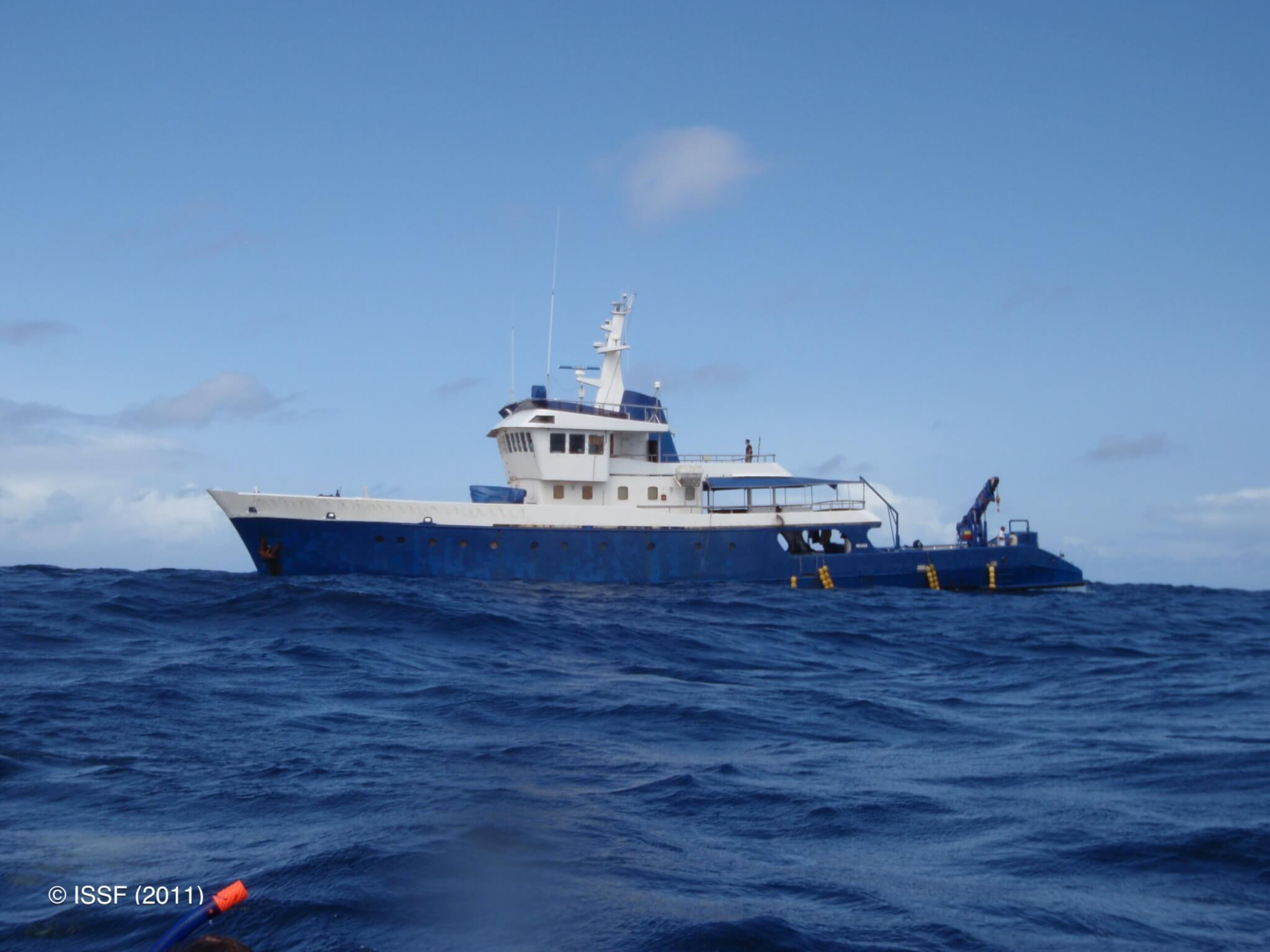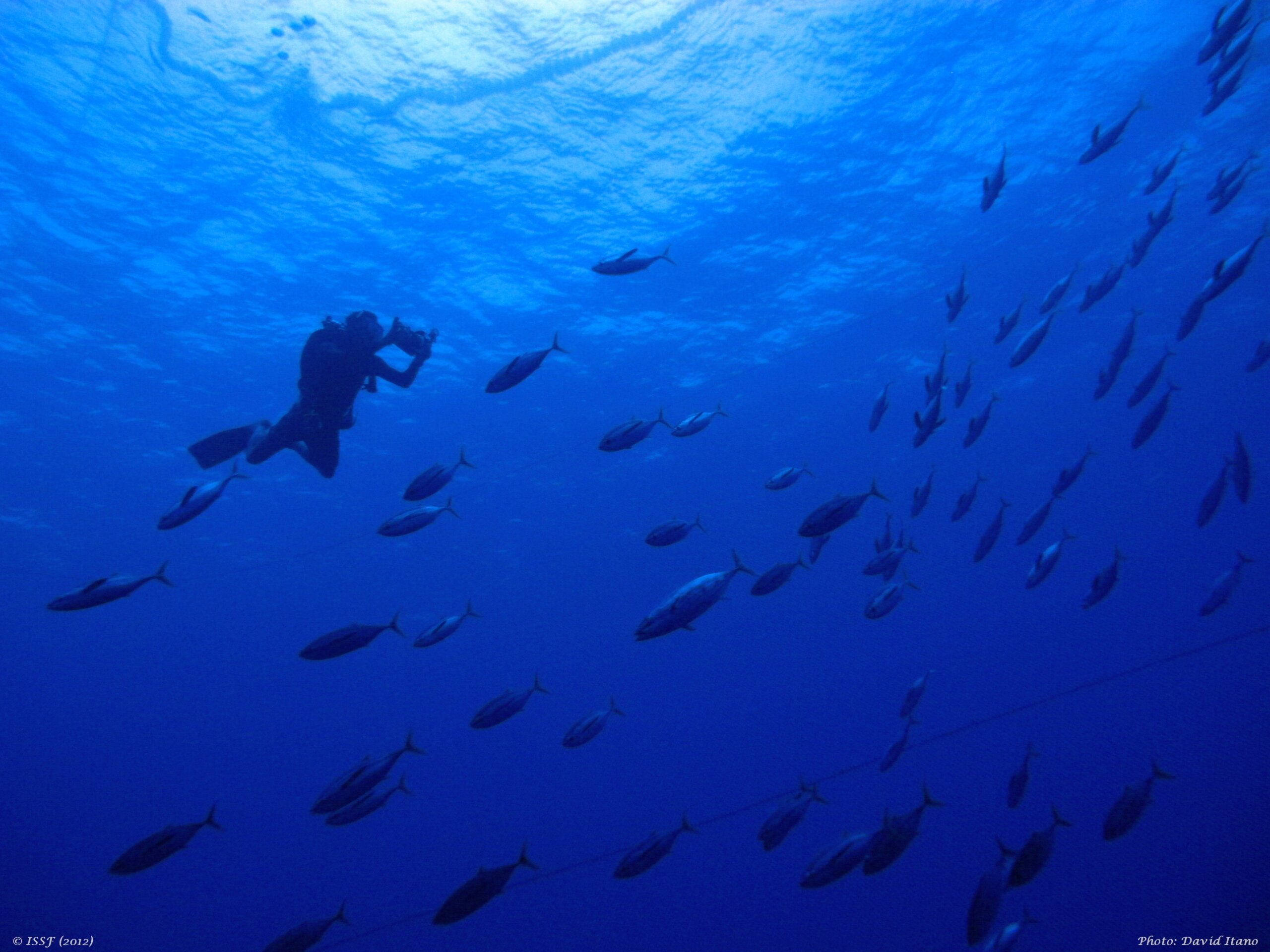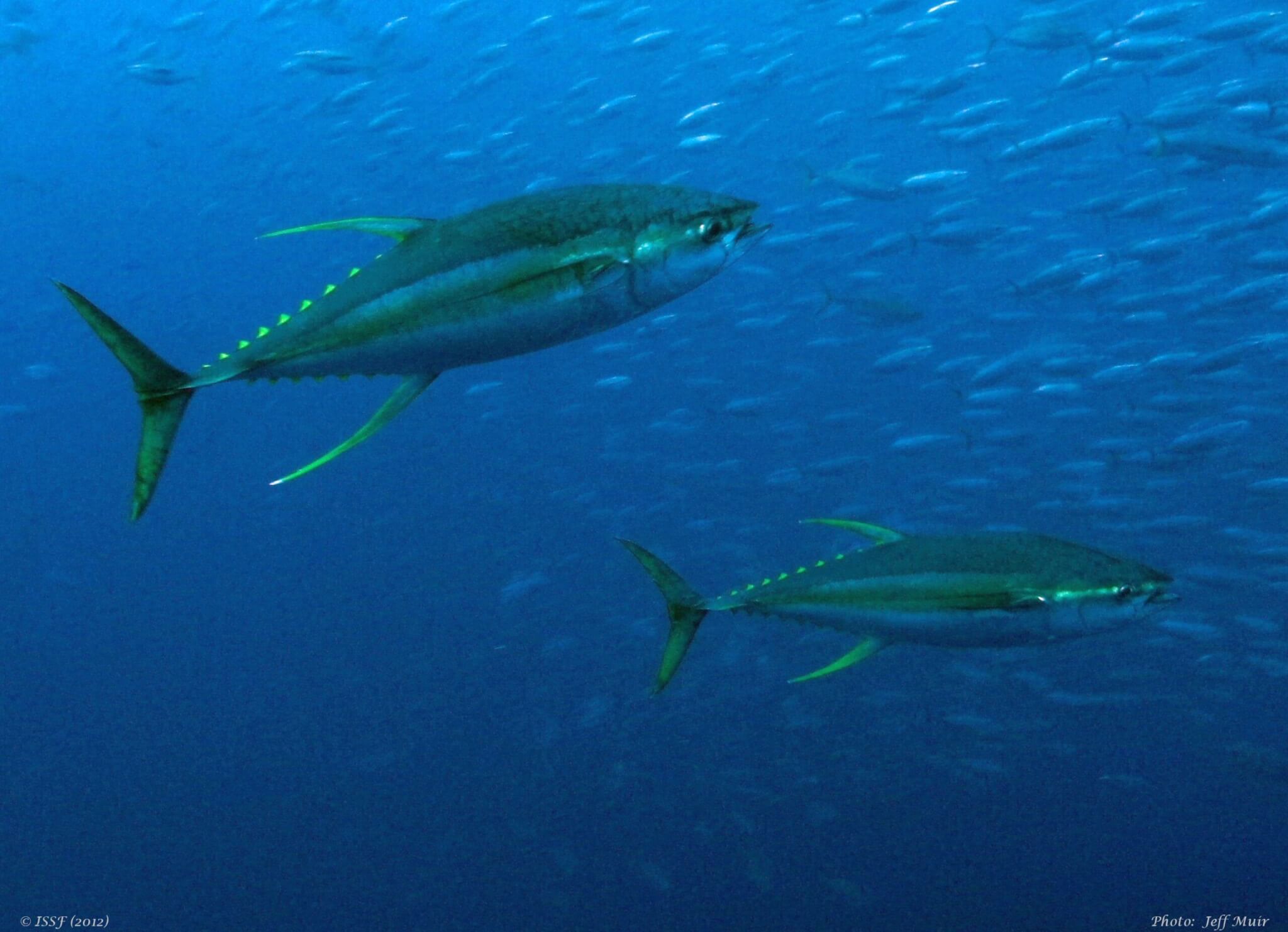2014 Year in Review and New Year’s Resolutions
It is that time again when we at ISSF start to dream of sugarplums, brightly wrapped packages, snowy landscapes – at least I do! – and taking a breather from the hectic year that’s nearly behind us. Before we do all that, let’s look back at what has been accomplished in 2014 in the tuna RFMOs, and take stock of what we will be focusing on in the year ahead.
THREE BIG WINS
On FADs
ICCAT and WCPFC took action towards effectively managing fish aggregating devices (FADs). We are all aware that fishing on FADs accounts for nearly 40% of global tuna catch. As such, a detailed analysis of FAD usage pattern is necessary to be able to determine sustainable fishing effort and impacts on tuna stocks. In 2013, ICCAT, IOTC and IATTC set a high bar for the future management of FADs by adopting rules for the collection of detailed data and recommending the use of FAD designs that reduce the entanglement of marine animals, such as sharks and seas turtles. The second component of FAD management progressed even further this year with both ICCAT and WCPFC creating special FAD working groups. The working groups will assess the use of FADs in tropical tuna fisheries; developments in FAD technology; the collection of additional FAD data; FAD marking and identification; FAD monitoring, tracking, and control and will identify management options.
But ICCAT did not stop there. It became the second RFMO to mandate the use of non-entangling FAD designs. Last year IOTC agreed that – gradually from 2014 – parties are to use and deploy FADs that are based on non-entangling designs. And this year, ICCAT agreed to require members to replace existing FADs with non-entangling designs by 2016.
On Harvest Strategies
When it comes to harvest strategies, target and limit reference points and associated Harvest Control Rules (HCRs), we are pleased to say that all RFMOs made progress this year:
- The IOTC committed to conduct science-management dialogues over the next three years. The three planned workshops are designed to support the development of an integrated management regime for the region’s tuna resources including, for example, the use of harvest control rules for Indian Ocean stocks.
- In IATTC, the Commission directed the Secretariat Staff to undertake a Management Strategy Evaluation (MSE) to evaluate the potential management strategies for northern albacore and tropical tuna stocks. The MSE will provide a strong basis for continued work on target and limit reference points and associated HCRs for this stock.
- In ICCAT, Parties also agreed to continue its science-manager dialogue working group that will support the development of an integrated management regime for the Atlantic Ocean’s tuna resources including, for example, the use of HCRs.
- Most recently, WCPFC adopted a new conservation measure establishing a work plan to support the development of a harvest strategy approach for key WCPFC fisheries and stocks. This work will be undertaken through a continuation of the Management Objectives Workshop framework and will include development of HCRs and a monitoring strategy.
Monitoring Control and Surveillance
IOTC, IATTC, and ICCAT all strengthened their commitment to modern monitoring, control and surveillance (MCS) tools:
- In IOTC a strong win was the agreement to implement a mandatory requirement for International Maritime Organization (IMO) numbers on eligible fishing vessels. A limited requirement for IMO numbers was adopted in 2013, but some IMO-eligible vessels were not obligated to obtain them. The resolution adopted this year ensures that all fishing vessels that are greater than 24 meters and eligible will obtain an IMO number.
- IATTC adopted a requirement for all eligible vessels to provide an IMO number in order to be on the IATTC Regional Vessel Register – by 2016. With this decision, IATTC fills a needed gap in this area – a big win for efforts to combat IUUfishing activities. Now all four tropical tuna RFMOs have now implemented this IMO requirement, ensuring that tuna fishing vessels are traceable throughout the world’s oceans.
- IATTC and ICCAT adopted much needed reforms to their Vessel Monitoring System (VMS) measures. VMS is an MCS tool to help to combat IUU activities on the water, prevent IUU catch from getting to markets, aid in enforcement of conservation measures and ensure that all nations are playing by the same rules. ICCAT agreed to speed up the rate of transmission of information from on-board VMS transceivers – from six hours down to four hours – and now requires flag States to work with coastal States to ensure that the position messages transmitted by vessels while fishing in coastal State waters are transmitted automatically and in real time to the coastal State that has authorized the fishing activity. IATTC also agreed to speed up the rate of transmission of information from on-board VMS transceivers – from six hours down to four hours for longliners and two hours for other vessels. The IATTC measure also now includes procedures in the case of a technical failure or breakdown of the VMS device.
The IATTC and ICCAT programs still have much room to improve to align with best practices for such programs, but their incremental steps are moving in the right direction. ISSF will be working closely with all tuna RFMOs in the coming year to advocate for further strengthened RFMO VMS programs – because even the best designed conservation measures don’t work if they aren’t effectively enforced on the water.
Our 2015 To-Do List – We’ll be Checking it Twice
A number of important management measures did not progress in 2014, so they’ll remain on our priority list into 2015. Here are the areas we’re pushing for action on in 2015, RFMO by RFMO:
- In IOTC: Requiring fishing gears other than purse seine vessels to retain their tuna catches; requiring 100% observer coverage year round for large-scale purse seine vessels; adopting a best practice regional VMS program; and prohibiting the catch and retention of vulnerable hammerhead and silky sharks.
- In ICCAT: Requiring 100% observer coverage year round for large-scale purse seine vessels and full retention of all tuna catches; prohibiting intentional purse seine sets on whale sharks; further reforming its VMS program; and assessing key shark species so that catch or effort limits, reference points and HCRs can be established for them.
- In IATTC: Effective capacity management by reducing the number of vessels authorized to fish for tuna in the eastern Pacific, as the current capacity exceeds the target level; enhancing the transparency of its compliance process; further reforming its VMS program; and adopting conservation and management measures for mobuild rays and silky sharks.
- In WCPFC: Ending overfishing of bigeye tuna by reducing fishing mortality via the adoption of a simple and enforceable CMM with no exemptions or exceptions; increasing the transparency of chartering and joint venture arrangements; addressing implementation issues in the transshipment measure; increasing the transparency of the WCPFC Compliance Monitoring Scheme by allowing for the participation of accredited observers in the working group meeting.
Globally speaking, we will continue to focus on science-based and enforceable tuna conservation measures; FAD management and the use of non-entangling FAD designs; fishing capacity management; the development of graduated responses to non-compliance and transparency in RFMO compliance processes; bringing RFMO programs – such as observer and VMS — up to best practice; strengthening RFMO IUU Vessel List processes, and science-based bycatch mitigation and shark management.
Thanks to all our partners and supporters for the great work in 2014. We look forward to working with you again in 2015 – it will be a big year! The ISSF team will continue to offer assistance and recommendations to all tuna RFMO members and stakeholders on these and other issues. As always we continue to work to support strengthened conservation and management of the world’s tuna fisheries on which so many communities and nations depend. Why? Because fish matter.


